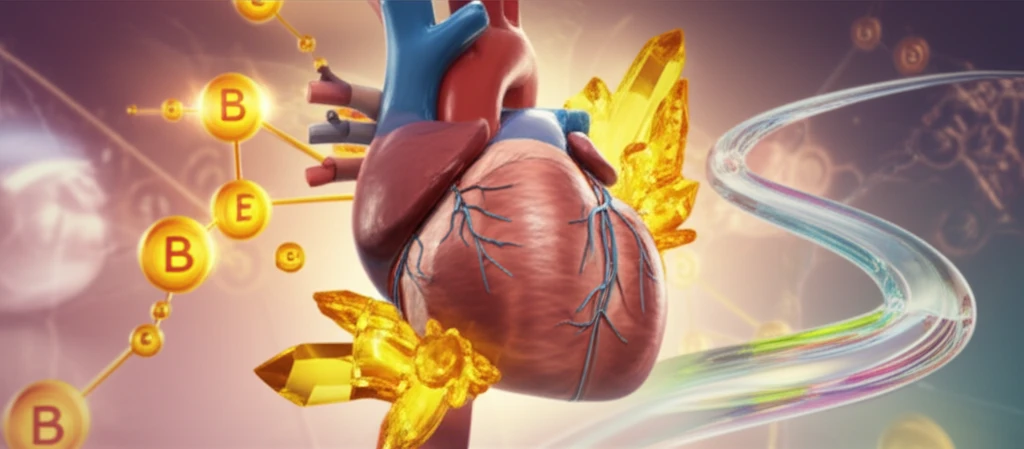
Unlock Heart Health: Can Vitamins and Diet Ward Off Cardiovascular Disease?
"Discover how B vitamins, sulfur amino acids, and dietary interventions can influence homocysteine levels, oxidative stress, and overall cardiovascular well-being."
Cardiovascular disease (CVD) remains a leading cause of mortality worldwide, prompting extensive research into its underlying mechanisms and potential interventions. Among the key areas of focus are the roles of vitamins, specific amino acids, and regulatory peptides in maintaining heart health. Recent studies shed light on how these factors influence critical processes such as homocysteine levels, oxidative stress, and atherosclerotic changes.
Homocysteine, an amino acid, has been linked to increased cardiovascular risk when present in elevated levels. This condition, known as hyperhomocysteinemia, can result from deficiencies in B vitamins. Researchers have investigated how B vitamin supplementation and dietary modifications can mitigate the harmful effects of high homocysteine levels on cardiac function. Furthermore, sulfur-containing amino acids, crucial for various physiological processes, are being studied for their impact on redox balance and cardiovascular health.
Beyond vitamins and amino acids, glucagon-like peptide-1 (GLP-1), a regulatory peptide, has garnered attention for its potential cardioprotective effects. GLP-1 is involved in glucose metabolism and insulin secretion, and emerging evidence suggests it may also play a role in reducing oxidative stress and preventing atherosclerosis. Studies are now exploring the association between GLP-1 levels and cardiovascular risk factors in individuals with type 2 diabetes.
B Vitamins and Homocysteine: A Powerful Connection for Heart Health

Hyperhomocysteinemia (HHcy), characterized by elevated levels of homocysteine in the blood, has been identified as a significant risk factor for cardiovascular diseases. This condition often arises due to deficiencies in B vitamins, which are essential for the proper metabolism of homocysteine. A study by Jakovljevic et al. investigated the impact of vitamin B complex on cardiac function in rats with high-methionine diet-induced hyperhomocysteinemia.
- Key Finding: Vitamin B complex mitigates the adverse effects of high homocysteine levels on cardiac function.
- Impact on Cardiac Function: B vitamin deficiency worsens cardiac performance and induces tissue remodeling.
- Clinical Implication: Maintaining adequate B vitamin levels may be crucial in preventing and managing cardiovascular issues related to hyperhomocysteinemia.
Taking a Holistic Approach to Heart Health
The intricate interplay between various nutrients, amino acids, and regulatory peptides highlights the complexity of cardiovascular health. Addressing risk factors through a combination of dietary modifications, targeted supplementation, and lifestyle changes may offer the most effective strategy for preventing and managing heart disease. Further research is needed to fully elucidate the mechanisms involved and to develop personalized interventions that optimize cardiovascular outcomes.
